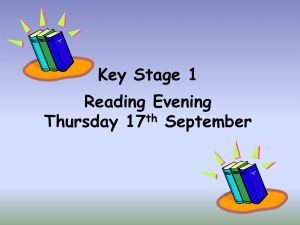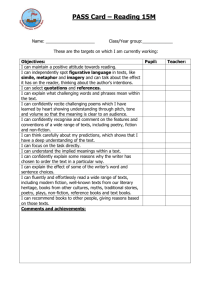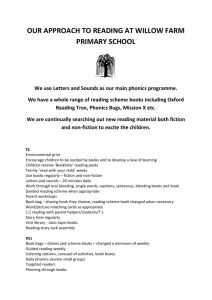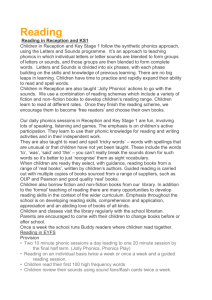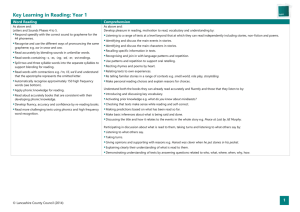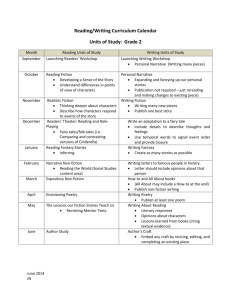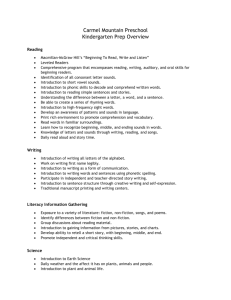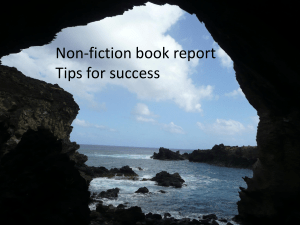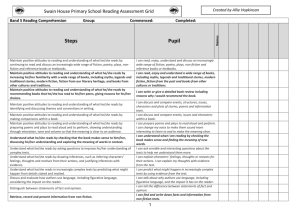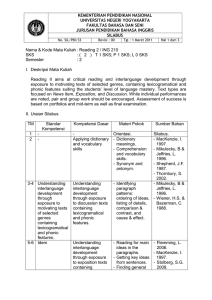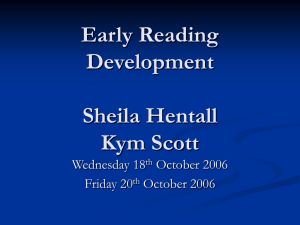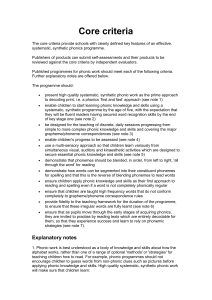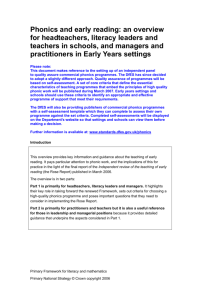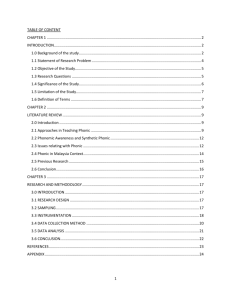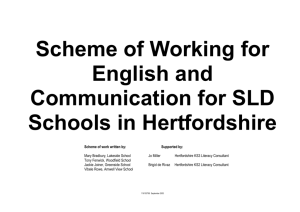Approach to Reading and Phonics - Appleton C of E Primary School
advertisement
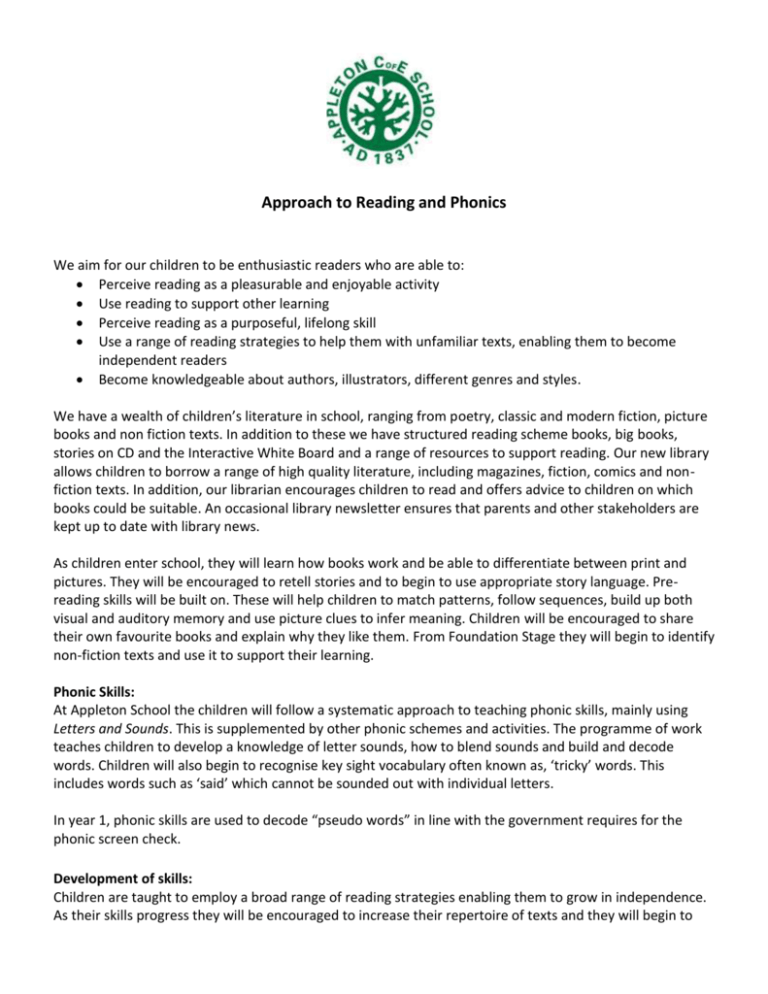
Approach to Reading and Phonics We aim for our children to be enthusiastic readers who are able to: Perceive reading as a pleasurable and enjoyable activity Use reading to support other learning Perceive reading as a purposeful, lifelong skill Use a range of reading strategies to help them with unfamiliar texts, enabling them to become independent readers Become knowledgeable about authors, illustrators, different genres and styles. We have a wealth of children’s literature in school, ranging from poetry, classic and modern fiction, picture books and non fiction texts. In addition to these we have structured reading scheme books, big books, stories on CD and the Interactive White Board and a range of resources to support reading. Our new library allows children to borrow a range of high quality literature, including magazines, fiction, comics and nonfiction texts. In addition, our librarian encourages children to read and offers advice to children on which books could be suitable. An occasional library newsletter ensures that parents and other stakeholders are kept up to date with library news. As children enter school, they will learn how books work and be able to differentiate between print and pictures. They will be encouraged to retell stories and to begin to use appropriate story language. Prereading skills will be built on. These will help children to match patterns, follow sequences, build up both visual and auditory memory and use picture clues to infer meaning. Children will be encouraged to share their own favourite books and explain why they like them. From Foundation Stage they will begin to identify non-fiction texts and use it to support their learning. Phonic Skills: At Appleton School the children will follow a systematic approach to teaching phonic skills, mainly using Letters and Sounds. This is supplemented by other phonic schemes and activities. The programme of work teaches children to develop a knowledge of letter sounds, how to blend sounds and build and decode words. Children will also begin to recognise key sight vocabulary often known as, ‘tricky’ words. This includes words such as ‘said’ which cannot be sounded out with individual letters. In year 1, phonic skills are used to decode “pseudo words” in line with the government requires for the phonic screen check. Development of skills: Children are taught to employ a broad range of reading strategies enabling them to grow in independence. As their skills progress they will be encouraged to increase their repertoire of texts and they will begin to make critical judgements about these texts. They will experience ‘real’ books, poetry, non-fiction, reading scheme books and other print media. They will develop a growing knowledge and understanding of the conventions of non-fiction. For example: contents, index, diagrams, headings and glossaries. Overall the children will be encouraged to read for pleasure and purpose. They will develop the confidence to read independently and fluently, understanding how punctuation is used to add meaning. From Foundation Stage, children will discuss the feelings of characters and why these characters act in a particular way. From Year One, group reading is used to ensure that children understand the text and can articulate their responses to it. They will begin to understand inference and figurative language and subtle meanings within the text. Teachers share books with their class which brings the children into contact with a wide range of children’s literature and ensures that they are hearing more complex language structures and storylines than they may be able to read for themselves. It also emphasises reading for pleasure and relaxation. Many stories and poems will be brought to life through the use of story sacks, story trays, drama and role play activities. Our new library to includes fiction as well as non-fiction books, enabling children to have a wider variety of books to read within school and to borrow and take home to share with their parents or read independently. Reading at Home: All children will take home a variety of reading books. From Foundation Stage these books will be linked to the children’s phonological knowledge. As they progress, colour coded books will be introduced from reading schemes, including Dandelions, Oxford Reading Tree, Collins Big Cat Phonics, Oxford Literacy Web, Pearson Phonics Bug and a variety of other non-scheme books. We take an individualised approach to the teaching of reading so children can progress according to their needs, interests and ability. We place great importance on the help which parents can give their children by reading with them and to them at home. We encourage parents to come into school to assist with reading practise within any year group. We provide information for parents and in parents meetings we discuss ways to support their child. Resources: Big books Guided reading books Reading Scheme books Picture books Non-Fiction books Fiction books Poems Plays Dictionaries/Thesaurus/Atlases First News Computing - DVDs involving reading skills, reading text with story CDs, reading text from research on the computer, online videos, interactive white board Environmental print and classroom displays More information about our approach to reading and phonics can be found in our Literacy policy.
